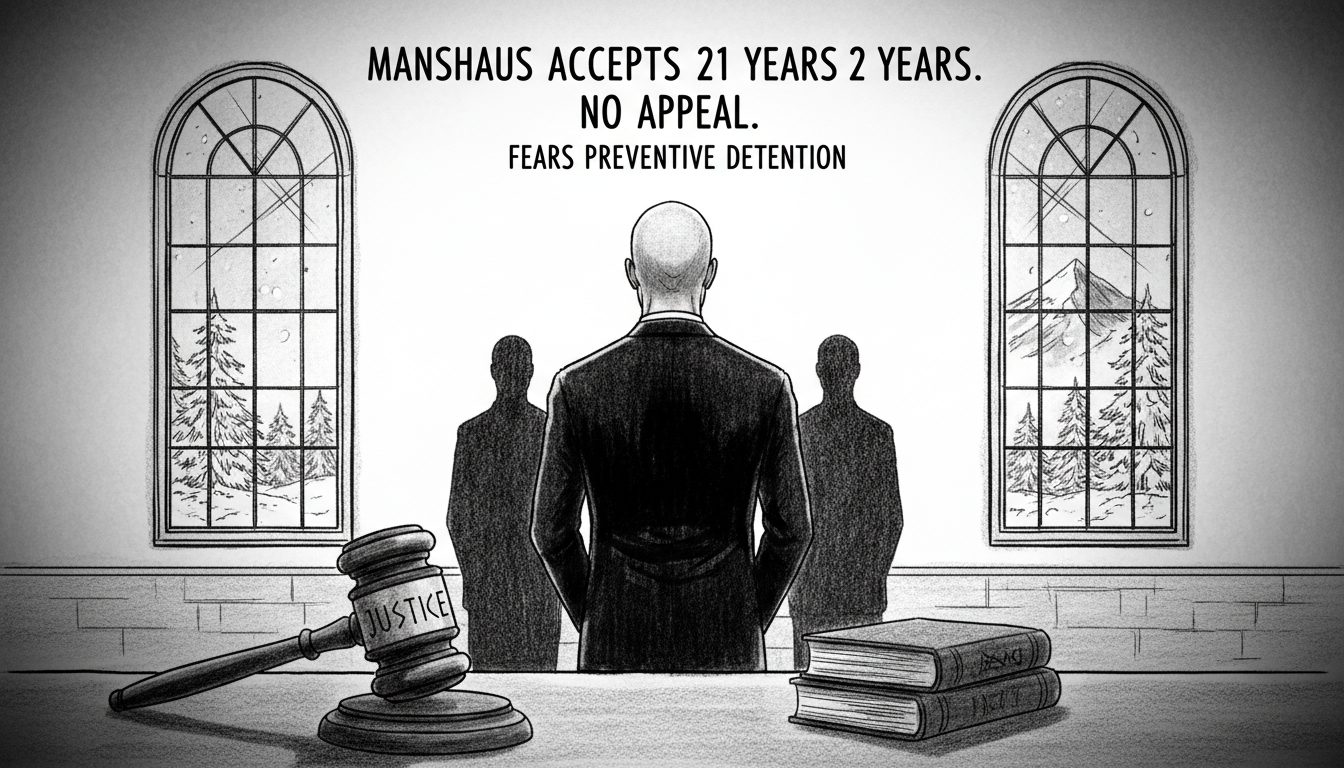Philip Manshaus has decided not to appeal his 21-year prison sentence for murder and terrorism. His defense attorney confirmed this decision in a public statement. The announcement ends months of legal uncertainty about whether the convicted terrorist would challenge his conviction.
Manshaus continues to maintain he was experiencing psychosis during the 2019 attacks. His legal team indicated he fears a higher court might impose preventive detention instead of a fixed prison term. Preventive detention in Norway allows for indefinite confinement if an inmate remains dangerous after serving their sentence.
Oslo District Court previously determined Manshaus was mentally competent when he committed his crimes. The court heard extensive psychiatric evidence before reaching this conclusion. Judges found him fully responsible for his actions despite defense arguments about his mental state.
This case represents one of Norway's most significant terrorism prosecutions in recent years. The Norwegian legal system emphasizes both punishment and rehabilitation. Fixed-term sentences with minimum periods reflect this balanced approach to justice.
Norwegian terrorism cases often involve complex assessments of defendant mental states. Courts must weigh psychiatric evidence against the gravity of criminal acts. The Manshaus verdict shows Norwegian courts take firm positions when evidence supports criminal responsibility.
International observers follow Norwegian terrorism prosecutions closely. The country's legal responses to extremist violence draw global interest. Norway's approach combines strict sentencing with rehabilitation programs designed to prevent reoffending.
The decision not to appeal brings closure to victims' families. They have endured multiple legal proceedings since the 2019 attacks. Finality in the case allows them to focus on healing without further court appearances.
What does this mean for Norway's counterterrorism efforts? The resolved case demonstrates the judicial system's capacity to handle complex terrorism prosecutions. It also shows defendants weighing practical legal strategies rather than pursuing unlikely appeals.
Norwegian prisons focus heavily on rehabilitation alongside punishment. Inmates serving terrorism sentences typically participate in deradicalization programs. These initiatives aim to address the ideological roots of violent extremism.
The case timeline involved several unusual legal developments. Authorities reopened proceedings after new psychiatric reports raised questions about Manshaus's mental state. The court ultimately dismissed these concerns based on comprehensive evidence.
Norway's legal system distinguishes between ordinary imprisonment and preventive detention. The latter applies to offenders considered likely to reoffend. Manshaus apparently preferred a fixed sentence over risking indefinite confinement.
This outcome reinforces public confidence in Norwegian justice. The system delivered a substantial sentence while respecting legal procedures. The resolution also saves considerable judicial resources that an appeal would have consumed.

